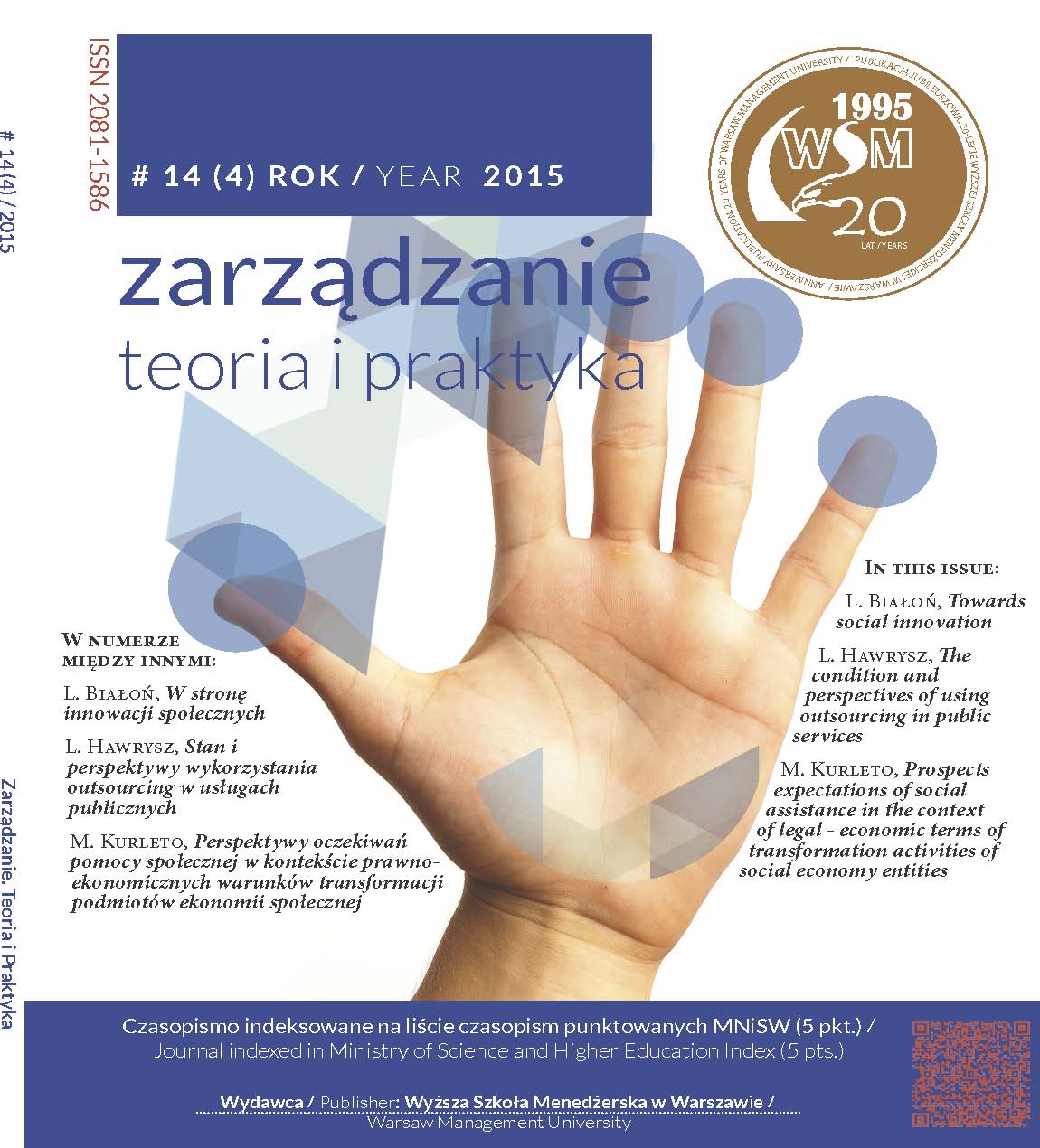Inercyjność i zmienność instytucji a rozwój
Inertia and evolution of the institutions and the development
Author(s): Zbigniew StaniekSubject(s): Economy, Business Economy / Management
Published by: Wydawnictwo Wyższej Szkoły Menedżerskiej w Warszawie
Keywords: institutional system; formal institutions; informal institutions (social capital); institutions-organisations; institutional equilibrium; institutional inertia; institutional policy;
Summary/Abstract: Institutional system and its effectiveness are widely considered to play an increasingly important role for the social and economic development. It is particularly the case of interplay between formal and informal institutions and institutions-organisations. Similarly the mutual adaptations take place between old and new institutions. The effect of these processes is called an institutional equilibrium. The state can actively shape it pursuing an institutional policy. This policy has to be always crafted to the specific time and place; importing foreign institutional setting proves to some extent ineffective. Each country with its characteristics, such as: tradition, historic experience, customs, legal and organisational culture requires a unique institutional system. The state determines it significantly as an institution-organization capable of formulating development goals, imposing economic rules or fostering cooperation with civil society and business. Institutional solutions in Japan, Vietnam or South Korea are particularly interesting in this respect.
Journal: Zarządzanie. Teoria i Praktyka
- Issue Year: 9/2014
- Issue No: 1
- Page Range: 3-10
- Page Count: 8
- Language: Polish

